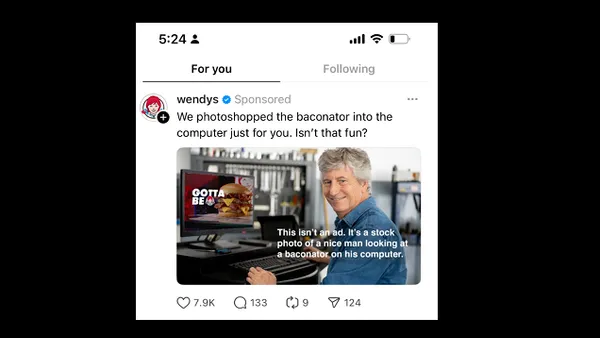Dive Brief:
- Facebook is accepting pitches for TV-like content across genres including sports, science, pop culture, lifestyle, gaming and teens, as reported by The Wall Street Journal.
- The Journal points out that one genre notably missing from the list is hard news, which has upset some news organizations. Several newsgroups have made major investments in Facebook video content, including helping the company launch its Live streaming video feature, though Facebook recently stopped paying publishers to do so.
- Facebook is currently searching out weekly series with 30-minute episodes. The company is willing to pay out in the low- to mid-six-figure range per episode for some shows, according to the Journal. Content creators will get a cut of the ad revenue as well as a prominent place in a new video tab on the mobile app.
Dive Insight:
Facebook joins several other big social players in pivoting toward long-form, premium video content, notably the upstart Snapchat, whose parent company Snap went public last week. These offerings arrive as a way to attract new advertising dollars, which will grow increasing essential to Facebook's bottom line as the digital ad real estate on its core News Feed continues to crowd out.
Reports have suggested that Facebook's strategy will ultimately look a lot more like Google's YouTube than an OTT service like Netflix. The company recently announced plans for a set-top box app for TVs that would better connect its growing stable of video offerings to larger screens.
The apparent absence of hard news from the proposed content roster is intriguing, suggesting Facebook's TV-like fare might be lighter and more fun in tone.
In the wake of the election, Facebook was repeatedly hammered for disseminating fake news, especially amid reports that nearly one-half of U.S. adults turn to Facebook as a way to stay current on events. Given the intense backlash the company faced, it could be steering clear of news-focused content as a way to avoid fresh controversy and also accusations of staking out political sides.
Facebook is also likely aiming to chase younger viewers who are turning to digital alternatives over cable and traditional broadcast TV. An entire category of content devoted broadly to "teens" speaks to this.














